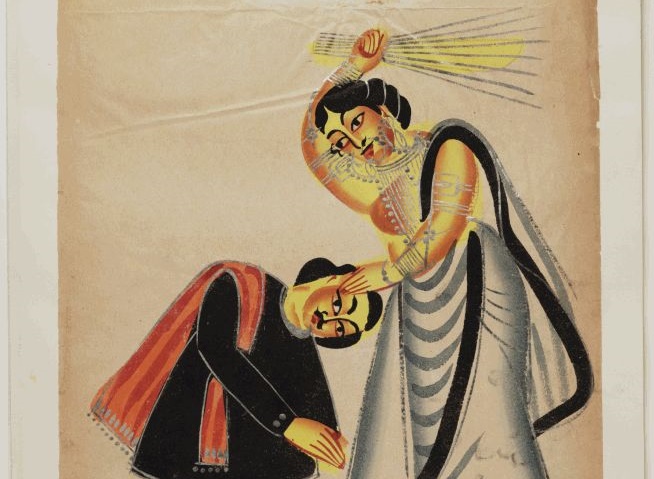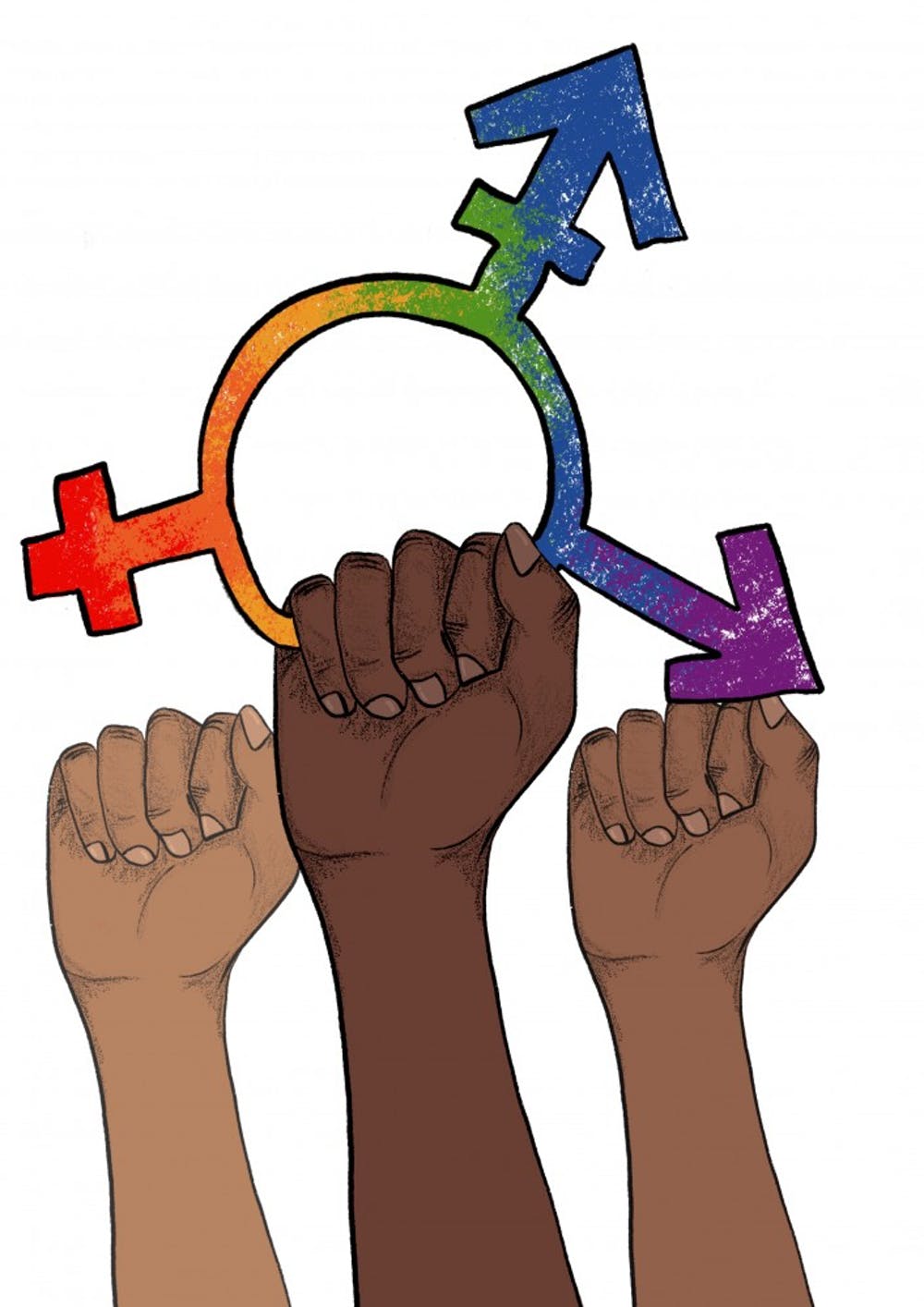The world over, sexual violence and abuse in marriage are a common phenomenon. Those who say that acknowledging the reality of marital rape is against Indian culture neither know India nor are cultured. A cultured society is one that faces problems head on, instead of pretending they don’t exist. However, it is plain common sense that before demanding amendments to existing laws or enactment of new laws, we must carry out a thorough audit of existing laws on the subject.
The zealous campaigners demanding a new law to cover marital rape have created a misleading impression that Indian laws provide no recourse to women who suffer sexual abuse and violence at the hands of their husbands.
DVA covers sexual violence: The truth is that the Domestic Violence Act of 2005, along with Section 498A of the Indian Penal Code, has more than enough provisions to provide relief to a victim of spousal violence and abuse including sexual or emotional violence or economic deprivation. True, the term “rape”is not mentioned in either of these laws. But isn’t sexual violence the same as “rape”? Why this bizarre obsession with getting an antiquarian term included in marriage laws?
When DVA defines “physical abuse”as acts that “cause bodily pain, harm, danger to life, limb or health or impair the health or development of the aggrieved person and includes assault, criminal intimidation and criminal force,”does it not adequately cover what can be termed ‘rape’?
 This is not all. DVA goes to specifically define “sexual abuse”as “any conduct of a sexual nature that abuses, humiliates degrades or otherwise violates the dignity of woman.”It further includes “verbal and emotional abuse, insults, ridicule, humiliation, name calling”, etc. DVA also provides recourse against “economic abuse”which is defined as “deprivation of economic or financial resources to the wife but not limited to household necessities for the aggrieved wife and her children”.
This is not all. DVA goes to specifically define “sexual abuse”as “any conduct of a sexual nature that abuses, humiliates degrades or otherwise violates the dignity of woman.”It further includes “verbal and emotional abuse, insults, ridicule, humiliation, name calling”, etc. DVA also provides recourse against “economic abuse”which is defined as “deprivation of economic or financial resources to the wife but not limited to household necessities for the aggrieved wife and her children”.
Can any reasonable person deny that not just marital rape but even lesser offences such as taunts or sexist jokes can be used as grounds for demanding relief under this Act? The law is already over-the-top in putting verbal abuse, sexist jokes at par with beating a wife. And yet, rabid feminists (both male and female) want more sadistic provisions in favour of women.
DVA enables the woman to seek orders against her eviction from the marital home so that her right to residence remains secure. At the same time, the woman can seek orders barring or restricting the accused from entering his own house, even if he has no other residence. In other words DVA allows a wife to render a man homeless and still be obliged to provide maintenance for wife and children plus monetary relief to the woman for loss of earnings, medical costs and any other expenses incurred by her on account of harm caused to her due to marital violence. The law also gives her prior right to custody of children.
These remedies are available not just to legally wedded wives but also to live-in partners—no matter how short the live-in relationship. This is one of the most harmful clauses because it puts legally wedded wives who may have given their whole life to a marriage at par with women having short-term flings. Yes, there are problems in honest implementation of these provisions. But why are rape-obsessed feminists not fighting for that instead of demanding yet another impractical law?
Provisions under 498A: The woman can simultaneously use Section 498A, which provides for effective criminal remedies against her husband for violence and cruelty. Under 498A, the husband or his relative who subjects her to cruelty shall be punished with imprisonment up to three years.
Cruelty is defined in an overarching manner as any wilful conduct which is likely to drive the woman to commit suicide or to cause grave injury or danger to her life, limb or health (mental or physical); or harassment to coerce her or any person related to her to meet any unlawful demand for any property.
It is plain common sense that a husband coercing his wife into sex against her wishes, especially if it involves the use of violence in sex, amounts to physical and emotional cruelty and therefore, covered by 498A. But the hunger for punitive measures of feminist zealots is not satisfied with these two laws. They argue that DVA only provides for “civil remedies” while the maximum punishment under 498A is just three years whereas under the regular rape law it can’t be less than seven years. Hence their insistence on a new law that treats rape in marriage as a specific crime at par with rapes outside marriage.
The PIL filed in the Delhi High Court by the NGO RIT Foundation has argued that treating marital rape as separate from general rape amounts to discriminating between two categories of women—those raped by husbands and those raped by others. Therefore it violates Article 14 of the Constitution, which promises equality before law. If these revenge-hungry feminists were serious about equality, they would not object to making anti-rape and domestic violence laws gender neutral. But they go ballistic at the mere mention of gender parity in laws.
The RIT petition also argues that the law amounts to a state-sanctioned licence granted to the husband to violate the sexual autonomy of his lawfully wedded wife and is, therefore, a violation of the Right to Privacy guaranteed to the wife under Article 21 of the Constitution. In RIT’s partisan worldview, men do not deserve the right to privacy or the right to fair trial through due process.
Legal terrorism: The timing of the high decibel demand for enacting a new law to cover marital rape is significant. In recent years, various High Courts as well as the Supreme Court have passed several judgments expressing serious concern at the growing and widespread misuse of domestic violence laws, especially 498A, as well as the anti-rape law, for the purpose of blackmail, extortion and revenge—that too using false charges.
In Sushil Kumar Sharma Vs Union of India (141 of 2005) the Supreme Court said, “We come across a large number of such complaints which are not even bona fide and are filed with oblique motive…”In Arnesh Kumar Vs State of Bihar judgment in 2014, the Supreme Court directed police and magistrates that due process be followed before arrest or detention. It ruled that no automatic arrests or detention be made in such offences. As a result of these restraints, arrests under 498A came down from 2.20 lakh to 1.86 lakh in 2015. The ease with which 498A has lent itself to abuse for extortion, blackmail and other malafide purposes made the Supreme Court to label it as an instrument of “legal terrorism”
Kumar Vs State of Bihar judgment in 2014, the Supreme Court directed police and magistrates that due process be followed before arrest or detention. It ruled that no automatic arrests or detention be made in such offences. As a result of these restraints, arrests under 498A came down from 2.20 lakh to 1.86 lakh in 2015. The ease with which 498A has lent itself to abuse for extortion, blackmail and other malafide purposes made the Supreme Court to label it as an instrument of “legal terrorism”
But, despite several such strictures, misuse of the law continued, especially where the accused were not well-informed, because it gave the corrupt police, unethical lawyers and judges ample opportunities to fleece people. On July 27, 2017, the Supreme Court again issued clear orders that the police should not arrest the accused family without due process.
The reason women-centric laws have come to be feared as “legal terrorism”is that certain excesses are common to all of them, all which render these laws easy-to-abuse.
1. A mere allegation by a woman that she is the victim of marital abuse, cruelty or dowry demands is enough to send the accused persons, including aged parents and teenage sisters, behind bars. Bail is not easy in these cases. Families spend years defending themselves even when the charges are blatantly false. The stigma involved with jail often means dismissal from jobs and destroys whole families.
2. In all other cases of crimes, including murder, the accused is presumed innocent till proven guilty. However, in all women-centric laws, the accused are presumed guilty till they prove their innocence.
3. The principle of due process, which is essential to fair trial, has also been done away with because the accused have to suffer the ignominy and trauma of jail even before the trial has begun.
4. The sole testimony of the woman is considered enough to indict the accused.
5. The definition of domestic violence has been widened enough to include even “verbal abuse”and “emotional/mental torture”.
A law which puts verbal taunts at par with physical violence is both unsound and irrational because it is easy to make allegations but impossible for the accused to prove that he/she did not subject the person to taunts or emotional abuse. The threat of undergoing jail even before the commencement of the trial makes husbands and their families easy targets of blackmail. There have been countless cases whereby even distantly placed sisters, brothers, uncles, aunts and old ailing parents have been falsely charged and put in jail and put through gruelling trials. Worst of all, even if the charges are finally proved tone false, the prosecutrix suffers no consequences.
Misuse of rape law: Likewise the anti-rape law has begun to be misused on a significant scale after the amendments of 2013 brought in some draconian provisions that enable unscrupulous women to implicate innocents with ease. Notice how wide and loose the definition of rape is: A man is said to commit rape if he inserts his penis (or any object or any other part of his body or any part of the woman’s own body) into the vagina, mouth, urethra or anus of a woman or makes her to do so with him or any other person; or “applies his mouth to her vagina, anus, urethra or makes her to do so with him or any other person…against her will, without her consent, with her consent when her consent has been obtained by putting her or any other person in whom she is interested, in fear of death or hurt or when her consent has been obtained while she was intoxicated or when she is unable to understand the nature and consequences of that of which she gives consent.”
The law clarifies that:
Consent means an unequivocal voluntary agreement when the woman by words, gestures or any form of verbal or non-verbal communication, communicates willingness to participate in the specific sexual act. Furthermore, “a woman who does not physically resist to the act of penetration shall not by the reason only of that fact, be regarded as consenting to the sexual activity.”
Thus even in case of adult sex, the term ‘consent’has been given a very irresponsible and easy-to-abuse meaning in Section 375 making it almost impossible for a man to defend oneself against the charge of rape with the aid of circumstantial evidence. A woman doesn’t even need to say or prove that she resisted the alleged rape. It’s enough if she post facto goes and tells the police that a particular sex act was against her wishes.
As per the pre-2013 anti-rape law, the judge could exercise his discretion regarding the quantum of punishment. But the 2013 amendments prescribe a minimum of seven years going up to life imprisonment. The court’s discretion to award less than seven years has been taken away. Under the present law, even the uncorroborated testimony of the prosecutrix without medical, independent oral or documentary evidence is sufficient to convict a person charged with rape.
In the wake of these amendments to Sections 375 and 376, the following questions of law arise:
* Is it reasonable, fair, just or rational to classify as ‘rape’, acts such as touching a woman’s private parts or subjecting her to intimate embrace or body contact or a deep kiss that are incapable of medical corroboration, when the sole testimony of the prosecutrix is sufficient to convict?
* Granting that such acts are certainly offensive if forced upon a woman, should they all be equated with rape and punished with equal severity, and does such an equivalence in penal consequences not violate the principle of proportionality in punishment and amounts to a violation of Article 14 apart from belittling the horror of real rapes?
* The loosely worded definitions provide an easy handle for consensual acts being given the taint of ‘rape’ex post facto, by persons actuated by malice. For instance, such provisions allow a woman to allege rape on grounds that she was drunk at the time and therefore was unable to give informed consent, even though the act was consensual when it happened. Such situations are common when women go to late-night bars and parties hosted by unknown people in luxury resorts where liquor and drugs flow freely or in private addas of aiyyashi [debauchery] euphemistically named “farm houses”.
* The words “where she is unable to communicate consent” (Section 375) are too vague and liable to abuse in the absence of any specification as to the nature of inability to express consent. Is the man expected to first video record her consent before going to bed with her?
All these amendments have made it easy to register flimsy rape complaints, without the requirement of objective substantiation of the charge. As soon as an accusation is made, there is an arrest, and aside from the deprivation of liberty, the filing of such a case leads to the irrevocable loss of reputation not just for the targeted individual but also for his entire family who are devastated by the ignominy of the heinous charge and the trauma of being treated as social outcastes. The media trial that accompanies rape complaints, especially in cases of high profile public figures, often influences the judicial process whereby even getting bail becomes a herculean challenge.
Draconian minimum: Under the IPC, except for murder under Section 302 and the actual act of waging war against the State, few offences are punishable with a statutory minimum term. Even in the case of culpable homicide under Section 304, only an upper limit is prescribed. The same is true for offences against the state, such as Sections 121A and 124A. Out of around 300 offences only about 25 have mandatory minimum sentences. A mandatory minimum extending to seven or more years is a recent (mainly post-2013) phenomenon, except for robbery with prior preparation or attempt to cause death or “dowry death’under 304B.
Sadly, our corrupt and incompetent police have happily registered rape cases on the basis of bizarre complaints whereby the woman has termed the entire period of a live-in relationship or years of voluntary intimacy as a case of repeated rapes just because the man refused to marry her. This when most such women don’t deny that the sexual/ live-in relationship was voluntary and not a forced affair. The very premise of a live in relationship is that either of the two partners can walk out of the relationship if they feel it is no more viable. To say that a man is legally obliged to marry a woman he has had sex with and failure to do so will mean a minimum prison term of seven years is to trample upon the principle of equality. Are we willing to accept that women who refuse to marry their lovers or want to put an end to a live-in relationship should be sent to jail?
 The easy sustainability of a rape charge under the new law has turned the threat of a rape complaint into a blackmail weapon. I can say on the basis of personal knowledge that unscrupulous policemen are running well-organised extortion rackets using male and female sex workers for blackmailing respectable citizens with the threat of trumped up cases of rape or sexual assault. In cases where sex workers either trap an unwitting person or voluntarily engage in commercial sex with him, the charge can even be medically corroborated through DNA examination of the semen. This is not to condone engaging in prostitution by men but merely to point out the unfairness of taking the word of the prosecutrix as gospel truth added to the provision that the past sexual history of a woman including the fact of her being a sex worker cannot be used as evidence against her. While there is no denying that even commercial sex providers have a right to say ‘No’when they so desire, and their ‘No’should be taken seriously, it is nevertheless relevant to show the many dangers of rendering rape prosecutions easy in an eco-system prone to abuse.
The easy sustainability of a rape charge under the new law has turned the threat of a rape complaint into a blackmail weapon. I can say on the basis of personal knowledge that unscrupulous policemen are running well-organised extortion rackets using male and female sex workers for blackmailing respectable citizens with the threat of trumped up cases of rape or sexual assault. In cases where sex workers either trap an unwitting person or voluntarily engage in commercial sex with him, the charge can even be medically corroborated through DNA examination of the semen. This is not to condone engaging in prostitution by men but merely to point out the unfairness of taking the word of the prosecutrix as gospel truth added to the provision that the past sexual history of a woman including the fact of her being a sex worker cannot be used as evidence against her. While there is no denying that even commercial sex providers have a right to say ‘No’when they so desire, and their ‘No’should be taken seriously, it is nevertheless relevant to show the many dangers of rendering rape prosecutions easy in an eco-system prone to abuse.
The abuse of anti-rape law becomes much easier because of the strict provision that the identity of the prosecutrix is to be kept anonymous while the identity and even photographs of the accused are freely publicised in the media. This in effect means that getting a man arrested and defamed on false charge of rape involves zero risk for unscrupulous women, even after falsity and malafide nature of charge is proven in court.
Personally witnessing countless cases of misuse, on March 17, 2017 I filed a PIL in the Delhi High Court for review of the anti-rape law with a view to getting unjust unfair and lawless provisions quashed. Kapil Sibal is arguing this PIL in court.
It is not the severity of punishment but the certainty of punishment in genuine cases that brings down crime in any society. The 2013 amendments have failed to act as a deterrent to sexual atrocities. There is no decline either in the number of rapes or in the brutality accompanying rapes. Leave alone curbing incidents of rape in secluded places or in privacy of homes, the law and order machinery has failed to curb even custodial rapes in police stations and hospitals. Similarly, cases of gruesome forms of rape, including child rapes no less brutal than the Nirbhaya case, are being reported on a daily basis. Gang rapes have also become alarmingly frequent. What is worse, rape is being treated as a sport by lumpenised youth, many of who proudly post video recordings of the acts of gang or individual rape on social media. This clearly shows that instead of showing fear of the stringent anti-rape law, people are cocking a snook at the law enforcement agencies.
Marital rape law would be lethal: Blindly extending the provisions of the draconian rape law to marital relations is to invite disaster and social chaos. It amounts to putting lethal weapons in the hands of women, without any safeguards for married men, many of who are already reeling under the “legal terrorism”of 498A and unreasonable provisions of DV A. Thousands of falsely implicated men have committed suicide and countless families have been destroyed beyond repair because our new-fangled laws carry the mistaken assumption that women are too angelic to book false cases and that only hapless victims among women go to police stations and law courts.
Husbands will be a thousand times more vulnerable than non-husbands to becoming targets of mala fide charges. Since the post 2013 anti-rape law doesn’t require any proof of tell-tale signs of violence on the woman’s body to suggest that she was forced into sex, or that she resisted sex on a particular night, it is easy for a wife to allege ‘rape’but impossible for a husband to prove that the act was consensual.
body to suggest that she was forced into sex, or that she resisted sex on a particular night, it is easy for a wife to allege ‘rape’but impossible for a husband to prove that the act was consensual.
Most married couples share the same room and sleep in the same bed. Sex between marriage partners is normal routine and is considered part of marital obligations on both sides. Countless women and men have sought divorce on the ground that they have been denied sexual satisfaction either because of the partner’s inability to perform sex or because of physical aversion to each other.
What protection does a man have against a wife who cooks up a rape charge to settle some other scores or get rid of the husband in order to live with her lover in her jailed husband’s house? The only way married men can protect themselves from such a post facto charge is to have CCTV cameras installed in every nook and corner of the house, including the couple’s bedroom and bathroom. Or do we want husbands to get a duly notarised signed statement on judicial paper before every kiss, embrace or sexual act?
What if the charge has been filed for the purpose of extortion, as is happening routinely with the existing rape law? Gone are the days of Sati-Savitris who would rather die than act vindictively towards their spouses. Nor are today’s women afraid of being labelled as “rape victims”, since for the unscrupulous women it brings economic and other rewards. Crying ‘rape’has opened many lucrative opportunities for blackmail with the woman even getting social sympathy while the man and his family are ruined for life.
This is not to deny that there are plenty of brutish husbands who inflict heinous forms of violence and indignities on their wives. But the real remedy against such husbands is to walk out on them, not insist on sharing the same bedroom and same bed with such a man. That is exactly what self-respecting women do. Divorce laws are today in favour of women. So why not seek freedom from brutish husbands, especially since DVA also protects the wife’s right to residence, maintenance and childcare?
Nihilism & moral conscience: At this, feminazis will scream: “In our conservative society, most women are petrified of seeking divorce.”But the very same petrified women won’t mind sending their husband to jail for minimum seven years? Their second idiotic counter would be: “Why should a rapist husband be let off with a mere three-year jail while other rapists get a minimum of seven years?”
To this I can only say, if a woman continues staying with her husband despite severe atrocities deserving seven-year jail, she has only herself to blame, now that the marriage, divorce and maintenance laws are heavily weighted in favour of women. Those who have failed to build exploitation-free lives with existing pro-women laws don’t deserve yet another law which has the potential to tear asunder family life and social fabric in India.
When I founded Manushi in 1978, women’s rights activists used to be celebrated and admired for their moral courage in giving voice to the voiceless. But the irresponsibility with which a section of women’s rights activists have made use of these laws has lent almost fascist connotations to feminism, with terms like feminazi coming into currency because of their sadistic delight in pushing for venal laws without any safeguards. These “women-protection measures”that have proved ruinous for countless families require a serious and comprehensive review.
When laws are not judiciously crafted, when draconian provisions are added as compensation for the failure of the law and order machinery to ensure security of life leading to easy abuse of law, it leads to mistrust and disrespect towards all institutions meant for enforcing law and order and dispense justice. The resultant cynicism and nihilism among citizens destroys the collective resolve and ability of society to combat crime. When women, who are traditionally seen as the moral conscience of society and hence worthy of reverence and special protection measures, are found to be misusing and abusing laws enacted for their protection, it delegitimises the very idea of special measures for protection of women.
The misuse of the above mentioned provisions for the purpose of blackmail, extortion, revenge and other malafide purposes goes to confirm that whichever individual or group in society, irrespective of gender, caste or class, is bestowed with legal power to tyrannise others for its own benefit, will invariably end up doing so. That is why the principle of constitutional equality—which becomes meaningless without equality before law courts—cannot be compromised under any circumstances. At the same time it is vital to build effective safeguards against misuse and abuse of laws by unscrupulous persons. A prerequisite for that is an honest, well-trained and accountable police force as well as an effective justice delivery system. Sadly, the feminazis don’t seem to be bothered about these niceties.






